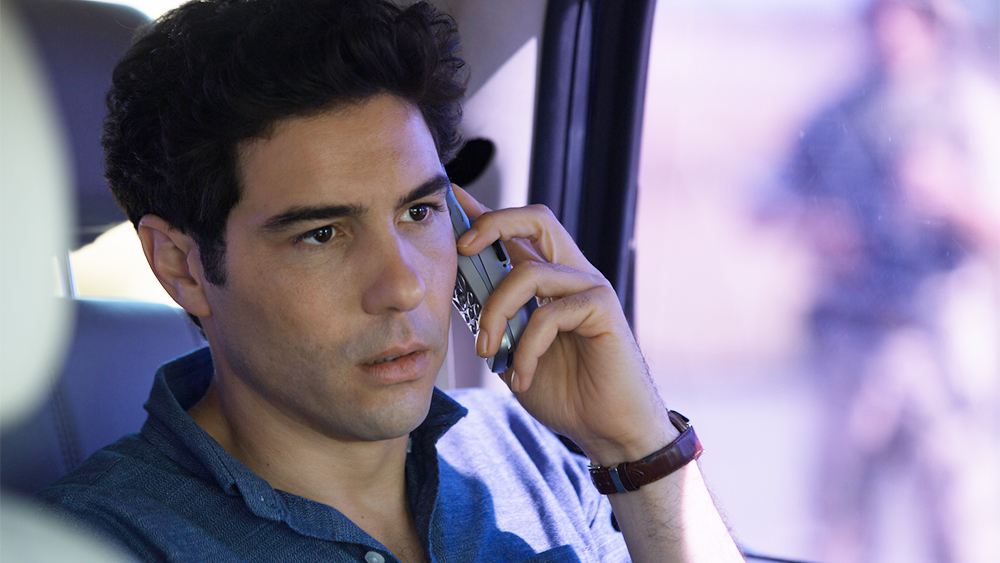Tahar Rahim on Lessons From ‘The Looming Tower’: ‘Know About Your World’
By Danielle Turchiano
LOS ANGELES (Variety.com) – French actor Tahar Rahim knows the chance to play an American hero is rare. “It’s a type of character you don’t get to be offered that often, especially when you’re from another country,” he tells Variety. But still, when he first received scripts for Dan Futterman’s Hulu limited series “The Looming Tower,” based on Lawrence Wright’s Pulitzer Prize-winning book of the same name, he wasn’t sure he was ready to take on the role of FBI agent Ali Soufan.
“I read the three first episodes — they were still writing the other episodes — and I thought it was great material and a great story,” he says. “But I needed to talk with Ali Soufan first. It’s hard for an actor to say yes to 30% of the script. I didn’t know what I was going to do next — I needed to know more about his evolution [and] I needed to be more reassured.”
Rahim talked with Soufan over the phone so he could “know more about his history — what was going to happen in the seventh through tenth episodes,” he continues. Since those scripts hadn’t been written yet, he was able to hear in Soufan’s own words what he went through working for the government around Sept. 11th. As the two men talked, Rahim, who comes from the world of film and is used to getting scripts with a beginning, middle and end all laid out from the start, began to understand not only the real-life hero he was being asked to play but also the events that led up to Sept. 11th, which he admits he didn’t know much about prior.
“When you think about what happened around 9/11, having the opportunity to play someone who’s a minority and who’s a hero, fighting against the terrorists, I was very excited to do that,” Rahim says. “I didn’t know if I would be able to do it, but I like a challenge.”
Once Rahim decided to take the part, he says it was key to get to know the man behind the work even better. “I felt I needed to know the spirit of that man [and] the heart of that man,” he explains. “When he works, it’s written, ‘He flew here, he flew somewhere else, he tried to interrogate this guy,’ those are facts, but to know the reactions he would have to the other people in the show, to understand that, you have to study him.”
Rahim did that, spending time with Soufan at his house and with his family, in addition to reading Wright’s book as research. The challenges he admits he faced on the project ended up not being about feeling pressure to represent the real Soufan a certain way but instead some more physical and technical aspects of the demanding drama.
“I had one scene running on the roof of houses, and we did it like 25 times, and I was dead,” Rahim admits with a laugh. “I was like, ‘A whole [show] like this? I’m not ready!’ That was tough, and you only have one minute to create it all on-screen.”
Additionally, the interrogation scene at the very end of the series initially took Rahim out of his comfort zone again. The actor is multilingual, but Lebanese is not one of the languages he speaks and had to learn it for a word-perfect 10-page scene on which the project would end.
“What I do is I over-prepare,” Rahim says of the moments when he is faced with something completely new on-set. “I took my coach with me, and I was working every day, two hours, three hours. You dive into it and you see what happens and sometimes you get surprised.”
Such devotion to the work is something Rahim says he, in part, learned from Soufan during the process of shooting “.”
“With this show, I needed to really work and prepare months before because of the language. And I found it was something I would try to do in every [project] — to see if it would bring me to the same level of concentration, because I was so focused,” he says.
Another thing the experience deeply ingrained in Rahim is the message of “Divided, we fail.” While he points out that the show is very clearly showing that more “hand-in-hand” unity between the CIA and FBI could have led to different results decades ago, he stresses the importance is also on learning from that history “so you are not doomed to repeat it.”
“As a real story, I’m really happy and proud to be a part of this show so we can tell the younger audience what happened. I was 20 years old when 9/11 happened, and when you’re 20 years old, you’re still stupid, you’re still a kid! But now there are people who were born in 2000 or ’95, and they need to know more about what happened. I would tell them, ‘Look, go investigate. Know about your world and why your world has changed. Know what happened — it’s part of American history, but it’s also a part of world history,’” he says.

